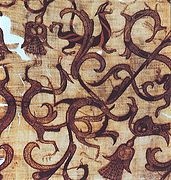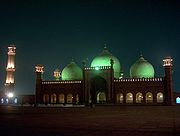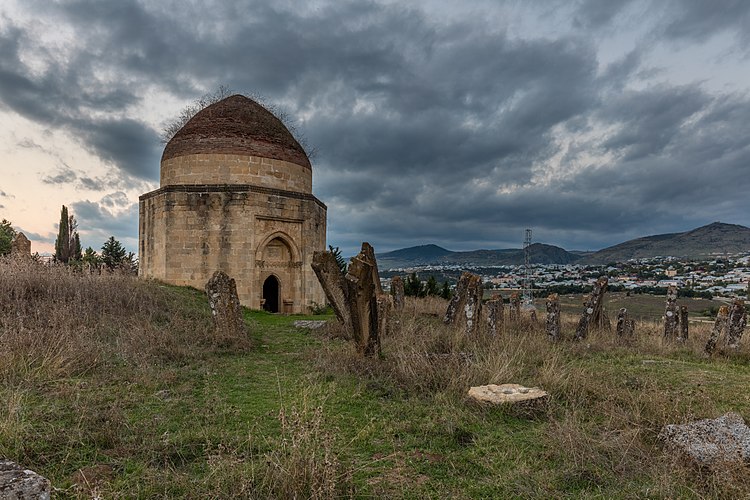Portal:Asia

 Asia (/ˈeɪʒə/ AY-zhə, UK also /ˈeɪʃə/ AY-shə) is the largest continent in the world by both land area and population. It covers an area of more than 44 million square kilometers, about 30% of Earth's total land area and 8% of Earth's total surface area. The continent, which has long been home to the majority of the human population, was the site of many of the first civilizations. Its 4.7 billion people constitute roughly 60% of the world's population. Asia shares the landmass of Eurasia with Europe, and of Afro-Eurasia with both Europe and Africa. In general terms, it is bounded on the east by the Pacific Ocean, on the south by the Indian Ocean, and on the north by the Arctic Ocean. The border of Asia with Europe is a historical and cultural construct, as there is no clear physical and geographical separation between them. It is somewhat arbitrary and has moved since its first conception in classical antiquity. The division of Eurasia into two continents reflects East–West cultural, linguistic, and ethnic differences, some of which vary on a spectrum rather than with a sharp dividing line. A commonly accepted division places Asia to the east of the Suez Canal separating it from Africa; and to the east of the Turkish Straits, the Ural Mountains and Ural River, and to the south of the Caucasus Mountains and the Caspian and Black seas, separating it from Europe. China and India traded places as the largest economies in the world from 1 to 1800 CE. China was a major economic power for much of recorded history, with the highest GDP per capita until 1500. The Silk Road became the main east–west trading route in the Asian hinterlands while the Straits of Malacca stood as a major sea route. Asia has exhibited economic dynamism as well as robust population growth during the 20th century, but overall population growth has since fallen. Asia was the birthplace of most of the world's mainstream religions including Hinduism, Zoroastrianism, Judaism, Jainism, Buddhism, Confucianism, Taoism, Christianity, Islam, Sikhism, and many other religions. (Full article...) Kolkata, formerly known as Calcutta (its official name until 2001), is the capital and largest city of the Indian state of West Bengal. It lies on the eastern bank of the Hooghly River, 80 km (50 mi) west of the border with Bangladesh. It is the primary financial and commercial centre of eastern and northeastern India. Kolkata is seventh most populous city with an estimated city proper population of 4.5 million (0.45 crore) while its metropolitan region Kolkata Metropolitan Area is third most populous metropolitan region of India with metro population of over 15 million (1.5 crore). Kolkata is the regarded by many sources as the cultural capital of India and a historically and culturally significant city in the historic region of Bengal. It is the second largest Bengali-speaking city in the world. It has the highest number of Nobel laureates among all cities in India. The three villages that predated Calcutta were ruled by the Nawab of Bengal under Mughal suzerainty. After the Nawab granted the East India Company a trading licence in 1690, the area was developed by the Company into Fort William. Nawab Siraj ud-Daulah occupied the fort in 1756 but was defeated at the Battle of Plassey in 1757, after his general Mir Jafar mutinied in support of the company, and was later made the Nawab for a brief time. Under company and later crown rule, Calcutta served as the de facto capital of India until 1911. Calcutta was the second largest city in the British Empire, after London, and was the centre of bureaucracy, politics, law, education, science and the arts in India. The city was associated with many of the figures and movements of the Bengali Renaissance. It was the hotbed of the Indian nationalist movement. (Full article...) China, officially the People's Republic of China (PRC), is a country in East Asia. With a population exceeding 1.4 billion, it is the world's second-most populous country after India, representing 17.4% of the world population. China spans the equivalent of five time zones and borders fourteen countries by land. With an area of nearly 9.6 million square kilometers (3,700,000 sq mi), it is the third-largest country by total land area. The country is divided into 33 province-level divisions: 22 provinces, five autonomous regions, four municipalities, and two semi-autonomous special administrative regions. Beijing is the country's capital, while Shanghai is its most populous city by urban area and largest financial center. China is considered one of the cradles of civilization: the first human inhabitants in the region arrived during the Paleolithic; by the late second millennium BCE, the earliest dynastic states had emerged in the Yellow River basin. The eighth to third centuries BCE saw a breakdown in the authority of the Zhou dynasty, accompanied by the emergence of administrative and military techniques, literature, philosophy, and historiography. In 221 BCE, China was unified under an emperor for the first time. Appointed non-hereditary officials began ruling counties instead of the aristocracy, ushering in more than two millennia of imperial dynasties including the Qin, Han, Tang, Yuan, Ming, and Qing. With the invention of gunpowder and paper, the establishment of the Silk Road, and the building of the Great Wall, Chinese culture—including languages, traditions, architecture, philosophy and technology—flourished and has heavily influenced both its neighbors and lands further afield. However, China began to cede parts of the country in the late 19th century to various European powers by a series of unequal treaties. (Full article...)Tōru Takemitsu (武満 徹, pronounced [takeꜜmitsɯ̥ toːɾɯ]; 8 October 1930 – 20 February 1996) was a Japanese composer and writer on aesthetics and music theory. Largely self-taught, Takemitsu was admired for the subtle manipulation of instrumental and orchestral timbre. He is known for combining elements of oriental and occidental philosophy and for fusing sound with silence and tradition with innovation. He composed several hundred independent works of music, scored more than ninety films and published twenty books. He was also a founding member of the Jikken Kōbō (Experimental Workshop) in Japan, a group of avant-garde artists who distanced themselves from academia and whose collaborative work is often regarded among the most influential of the 20th century. (Full article...)The following are images from various Asia-related articles on Wikipedia. View of one of the Yeddi Gumbez Mausoleums at dusk in Şamaxı, Azerbaijan. The cemetery dates from 1810 and was built for a family of Mustafa khan – the last khan of Shamakhi.
Updated: 6:33, 14 February 2024
Major Religions in Asia Middle East Central Asia and Surroundings Indian Subcontinent Southeast Asia East Asia
Bangalore, is the capital of the Indian state of Karnataka. It has a population of over ten million, making it a megacity and the third-most populous city and fifth-most populous urban agglomeration in India. The following Wikimedia Foundation sister projects provide more on this subject:
Shortcuts to this page: Asia portal • P:ASIA Purge server cache |





























































































